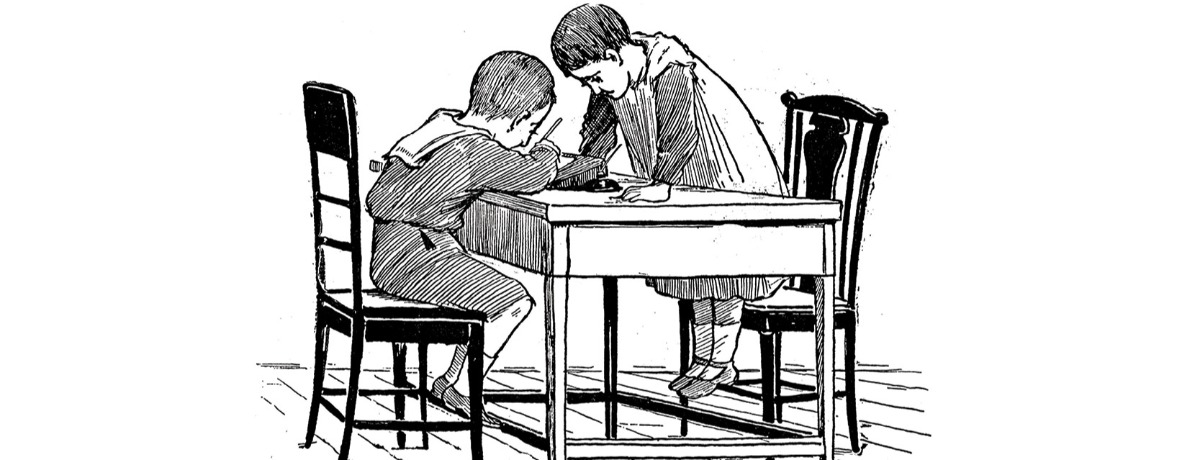I was an appellate judge for 14 years in a time and place long ago and far away—before iPhones, before Facebook, before instant messaging, before Twitter, before (dare I say) COVID-19. In that time and place, I was a (relatively) young judge with (truly) young, rambunctious daughters who loved for me to read to them. And that, my friends, is the beginning of this story about writing for judges.
Some books my daughters (and I) liked, but others they (and I) did not. Why? The more I pondered this, the more I realized that children’s authors and brief writers face similar challenges and obstacles. What challenges do children’s authors face, you ask? A highly mobile, restless, critical readership with short attention spans who may know nothing about the topic and need it explained simply.
And brief writers? Er... yes, the same. Back in the day, I would often read almost 500 pages of text a week in cases I knew nothing about, some in specialized areas unfamiliar to me—and that’s not counting the law I read for each case. I didn’t want briefs containing six-line sentences laden with four-syllable words. I wanted straightforward, plain writing. Back then I thought I was busy. If I felt busy without an iPhone or Twitter, imagine how judges feel now with all the pressure to engage daily on social-media venues.
"One of my mantras is 'The more complex the case is, the simpler the language.'"
All is not lost, though, because children’s authors have a number of techniques they use to maintain their readers’ focus. We’ll cover five here.
First, they use short sentences, simple language, and repetition to make their point. Take Doctor De Soto, by William Steig:
Doctor De Soto, the dentist, did very good work, so he had no end of patients. Those close to his size—moles, chipmunks, et cetera—sat in the regular dentist’s chair. Larger animals sat on the floor, while Doctor De Soto stood on a ladder. For extra-large animals, he had a special room. There, Doctor De Soto was hoisted up to the patient’s mouth by his assistant, who also happened to be his wife.
That was simple and fun to read. Or take this straightforward language by Justice Scott Brister, from Michiana Easy Livin’ Country, Inc. v. Holten, 168 S.W.3d 777 (Tex. 2005):
James Holten decided to buy a $64,000 Coachmen recreational vehicle sight unseen. Eschewing every RV dealer in Texas, he sought a lower price from Michiana Easy Livin’ Country, Inc., an outlet store that only did business in Indiana. Holten called Michiana in Indiana, sent payment to Indiana, and agreed to resolve every dispute in Indiana. But when a dispute arose, he filed suit in Texas.
That’s simple too. (One of my mantras is, “The more complex the case, the simpler the language.”) And how about the repetition in that quote above? Justice Scalia must also have read children’s books to his kids, because he used repetition too (emphasis added):
It is perfectly obvious on the face of this statute that Congress, with the concurrence of the President, intended to “provide the President with flexibility in implementing its Burma sanctions policy.”...
It is perfectly obvious on the face of this statute that Congress expected the President to use his discretionary authority over sanctions to “move the Burma regime in the democratic direction.”...
It is perfectly obvious on the face of the statute that Congress’ Burma policy was a “calibrated one.”...
Crosby v. Nat’l Union Trade Council, 530 U.S. 363 (2000) (Justice Scalia concurring). There are two more paragraphs like this, but you get the picture: Repetition can help make your point. And frequently I will do exactly that by repeating the same short sentence three times with only slight variation, much like the three repeated phrases in Michiana Easy Livin’.
Second, children’s authors use concrete details to help them make their point. Think Ecclesiastes:
For everything there is a season, and a time for every purpose under heaven: a time to be born, and a time to die; a time to plant, and a time to pluck up what is planted. ...
Ecclesiastes 3:1-2. Better yet, look at another of my favorites, Chester’s Way, by Kevin Henkes:
Chester had his own way of doing things. ...
He always cut his sandwiches diagonally.
He always got out of bed on the same side and
He never left the house without double-knotting his shoes.
Chester always had the same thing for breakfast—toast with jam and peanut butter.
And he always carried a miniature first-aid kit in his back pocket. Just in case.
Now, what if Henkes had begun the book this way: “Chester had OCD.” That doesn’t tell us nearly as much as what he actually wrote, does it? Nor is it as interesting. Concrete details make your argument clearer. They make an abstract idea—OCD—concrete, and they create a visual.
Consider this paragraph from an opinion explaining why a doctor was not qualified to testify about hospital credentialing:
The curriculum vitae the plaintiffs submitted for Dr. Brown was a model of brevity. It lists where she went to high school but not medical school. It discloses a “general surgery internship” but not when it took place or how long it was. For employment, it shows two years practicing emergency medicine (1978–80), twenty years in solo family practice (1980–2000), five years “specializing in medical-legal issues” (1995–2000), and a “house call business in general medicine” since 2000. It lists no hospitals where she is on staff, or has been for twenty years, though in her reports Dr. Brown says she has worked as a “surgical assistant” and attended “heart catherizations” [sic] regarding some of her patients. There is nothing else in either the CV or the reports to suggest she has special knowledge or expertise regarding hospital credentialing.
In re McAllen Medical Center, 275 S.W.3d 458,463 (Tex. 2008).
When you want to be concrete, think lists. And while I’m on it, acronyms are not concrete; acronyms—other than IRS, NYPD, and other common examples—are vague to everyone but insiders on a case. Since a judge is not an insider, acronyms are vague to the judge. Deciphering an acronym really is no different from translating a foreign word into English: You can’t move on until you translate the word or acronym.
Third, children’s authors cut all the clutter (my thanks to William Zinsser for this); they know when detail is necessary and when it isn’t. Let’s look at another favorite of mine, Mike Mulligan and his Steam Shovel, by Virginia Lee Burton (emphasis added):
It was Mike Mulligan and Mary Anne and some others who cut through the great canals for the big boats to sail through.
It was Mike Mulligan and Mary Anne and some others who cut through the high mountains so that trains could go through.
It was Mike Mulligan and Mary Anne and some others who lowered the hills and straightened the curves to make the long highways for the automobiles.
This story is about Mike Mulligan and Mary Anne (and the town hall they helped build); the “others” don’t matter, so no need to do more than mention them.
What’s your brief about? To cut the clutter, you must know your case and the controlling law; if you don’t know these two things, you can’t know what to cut. To borrow from William Zinsser in his 1976 classic On Writing Well, “Clear thinking becomes clear writing. ...It’s impossible for a muddy thinker to write good English.”
Have you ever been frustrated by an opinion that gave a reason for a holding and then almost as an afterthought (which it usually is) listed another reason for the holding so you can’t tell if the extra reason is also necessary to the holding? When you’re writing a brief, don’t do that—don’t throw in every fact you can think of just because it makes you feel better. If you aren’t willing to decide precisely what the law is—and which facts are relevant—and stick to it, the holding may surprise you. If the law is unclear, say it’s unclear and explain what the court should do.
"To cut the clutter, you must know your case and the controlling law; if you don't know these two things, you can't know what to cut."
Fourth, children’s authors are fascinated with their subjects. They want the reader to continue reading, so they do their best to make the story interesting. As Zinsser wrote:
The most important sentence in any [brief] is the first one. If it doesn’t induce the reader to proceed to the second sentence, your [brief] is dead. And if the second sentence doesn’t induce [the reader] to continue to the third sentence, it’s equally dead.
“Wait!” you exclaim. “Does this mean my entire brief has to be interesting?” Yes, it does. Remember Doctor De Soto and how he was hoisted on a rope so he could examine very large animals? Here’s the next part:
Being a mouse, he refused to treat animals dangerous to mice, and it said so on his sign. When the doorbell rang, he and his wife would look out the window. They wouldn’t admit even the most timid-looking cat.
One day, when they looked out, they saw a well-dressed fox with a flannel bandage around his jaw. “I cannot treat you, sir!” Doctor De Soto shouted. “Sir! Haven’t you read my sign?”
“Please!” the fox wailed. “Have mercy, I’m suffering!” And he wept so bitterly it was pitiful to see.
Just a moment,” said Doctor De Soto. “That poor fox,” he whispered to his wife. “What shall we do?” “Let’s risk it,” said Mrs. De Soto. She pressed the buzzer and let the fox in.
I’m interested, aren’t you? And yes, that tax case you’re appealing might not be as interesting as Doctor De Soto, but if you don’t find something interesting about it, your reader certainly won’t. When your writing becomes boring, the judge will simply switch to the other brief.

"Wait!" you exclaim. "Does this mean my entire brief has to be interesting?" Yes, it does.
One of the best ways I know to make a brief interesting (and to cut clutter) is to find the most impatient person you know for “all things law” and imagine what you would say to them about the case so they will hear you out. This exercise forces me to discard everything but the most necessary information; otherwise, I won’t be able to finish what I want to say. This practice often provides the basis for my brief. For me that person is my husband. Who is yours?
Fifth, children’s authors use visuals to keep their readers’ attention. Visuals are important, because many readers—many judges—are visual learners. Visuals do many things.
They can induce more thought on a topic. Have you ever read a 1,200-page biography? Remember those photos they insert every 300 or 400 pages? I don’t know about you, but I can get tired of just reading text. When I do, I flip to the photos, and after I peruse them for a while, I find I can read more.
What kind of visuals can you use in your brief? (No, I’m afraid you can’t use an illustrator to draw a caricature of the other side.) Scan important documents or photos into the brief. Use charts and bullet points and timelines. Have a bolded heading on almost every page. Make sure you have enough of what writers call “white space”—the part of the page that contains no writing. You create white space whenever you begin a new paragraph—do that as much as you can—and when you indent quotations. In fact, whenever I use quotations, I indent them as far as possible. If your briefing rules allow it, you might also consider enlarging the margins on either side; this can make the page seem less cluttered.
Well, I’ve reached The End. Don’t forget Doctor De Soto, Chester’s Way, and Mike Mulligan and his Steam Shovel. They can help you! Happy writing.
Wanda McKee Fowler is currently a partner at Wright Close & Barger. Before joining the Houston firm, she served as a Justice on the Fourteenth Court of Appeals for almost 14 years. While on the Court, she authored approximately 1,900 opinions and decided approximately 3,800 more cases. Prior to joining the court, Ms. Fowler was a commercial litigator in private practice and was in-house legal counsel for GTE Mobilnet. Wanda has been recognized in The Best Lawyers in America© (2013 – present) for Appellate Law and its list of Texas’ Best Lawyers® (2013 – present) .

















